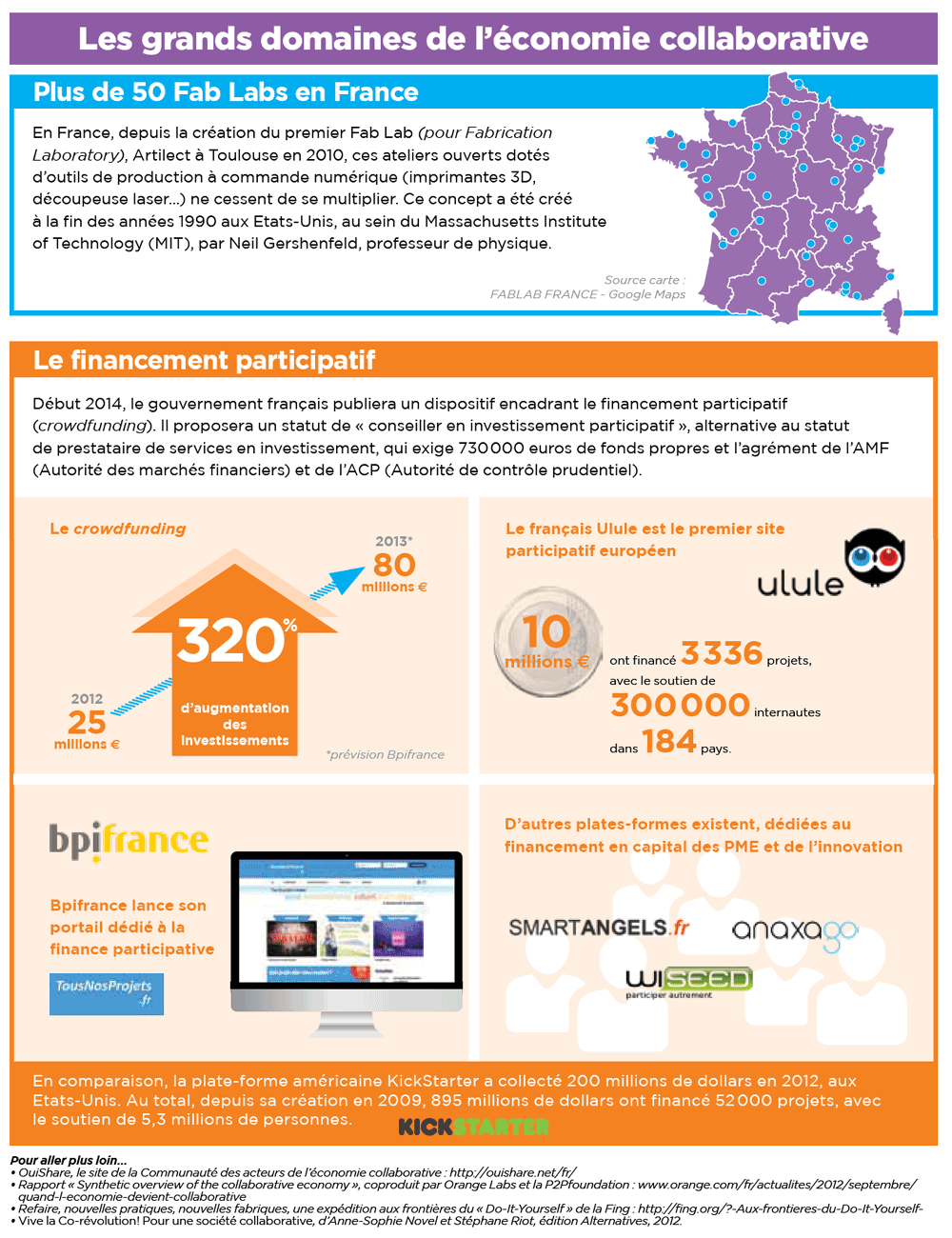The shared economy has established itself as an innovative model, transforming the way individuals and businesses exchange goods and services. This concept relies on the optimization of under-utilized resources, promoting sharing, borrowing, and collaboration. In the era of digital transition, this model offers an economic and ecological alternative, challenging traditional consumption patterns and placing efficiency and cooperation at the heart of economic interactions.
Table des matières
ToggleGlossary: Understanding the Shared Economy
The shared economy or collaborative economy is an emerging economic model based on sharing, exchanging, and collaborating among individuals. It is characterized by the optimized use of resources through digital platforms that facilitate contact between individuals to exchange goods and services.
Exchange platforms: These are websites or online applications that facilitate the sharing of goods (like cars or accommodations) and services (like time or skills). They allow people who want to share their resources to connect. For example, Airbnb allows users to share their homes while BlaBlaCar facilitates carpooling.
Digital transition: This concept refers to the shift from traditional activities to digital models. In the context of the shared economy, digital transition is crucial as it enables the creation, management, and utilization of online exchange platforms.
Under-utilized goods: These refer to resources or possessions that are not utilized to their full potential. The shared economy values these goods by enabling their pooling and use by others, thereby reducing waste and environmental impact.
Service economy: At the heart of the shared economy is the service economy model. Rather than owning goods, users prefer to access services. For example, they may choose to use a car rental service instead of buying a car.
Collaborative consumption: This term refers to a mode of consumption where access is prioritized over ownership. Users enjoy the benefits of goods and services without necessarily owning them. This is made possible through rental, barter, or donation platforms.
Social innovation: The shared economy encourages social innovation through the creation of new models of collaboration and solidarity. Communities form and promote sharing and cooperation behaviors.
Fab Labs: These digital manufacturing laboratories are open spaces where individuals can share tools, knowledge, and ideas to co-create products. They illustrate the spirit of the shared economy applied to production.
Cloud Computing: Cloud computing is essential to the shared economy, allowing for the storage and management of data needed for the operation of exchange platforms. To learn more about cloud computing, you can check out this dedicated article.
Predictive maintenance: This concept used in optimizing the shared economy allows for predicting and preventing breakdowns through real-time collected data. This improves operational efficiency and reduces maintenance costs.
Lean production: In the shared economy, lean production advocates for the elimination of waste and a more efficient use of resources. This model aims to provide just what is necessary, when it is necessary.
Smart contracts: Smart contracts, using blockchain technology, are automatic and self-executing. They enhance trust among participants in the shared economy by ensuring that the conditions of exchanges or services are strictly adhered to.
Algorithms: Algorithms play a key role in the functioning of shared economy platforms, facilitating the matching of supply and demand. To deepen your understanding of algorithms, visit this article.
Regulation and taxation: The shared economy presents challenges in terms of regulation and taxation. Governments seek to frame these new practices to ensure a level playing field between traditional players and new economic models.
Environmental impact: Through the reuse and sharing of resources, the shared economy can contribute to a reduction of the carbon footprint and support more sustainable lifestyles.
To further understand the impact of new technologies related to this transition, feel free to explore this article on 5G.

FAQ: Understanding the Shared Economy
Q: What is the shared economy?
A: The shared economy is based on the exchange, sharing, and collaboration among individuals concerning goods, services, and resources. It allows for leveraging under-utilized assets to maximize their use and create value without the necessity of exclusive ownership.
A: Benefits include better resource utilization, cost reduction, greater accessibility of goods and services, and promotion of environmental sustainability. This model also fosters mutual aid and community development.
A: Among the disadvantages are issues of regulation, fluctuating quality and reliability of services, security and privacy concerns, as well as taxation conflicts and competition with traditional economic models.
A: A shared economy platform connects individuals wishing to share or borrow goods and services. These platforms often use algorithms to match users according to their needs and availability. Transactions are typically facilitated by integrated online payment systems and ratings to assure trust among users.
A: Although the terms are often used interchangeably, the collaborative economy encompasses a broader range of activities. The shared economy primarily focuses on the sharing of under-utilized assets, while the collaborative economy also includes open collaboration and co-creation platforms.
A: Some common applications include carpooling (such as BlaBlaCar), home sharing (such as Airbnb), tool or equipment rental, as well as skill and expertise sharing services (such as TaskRabbit). These platforms enable the pooling of resources for mutual benefit.
A: By maximizing the use of existing goods, the shared economy reduces the need to produce new resources, thereby decreasing the carbon footprint and waste. It also encourages more responsible and sustainable behaviors by promoting the reuse and recycling of goods.
“`





